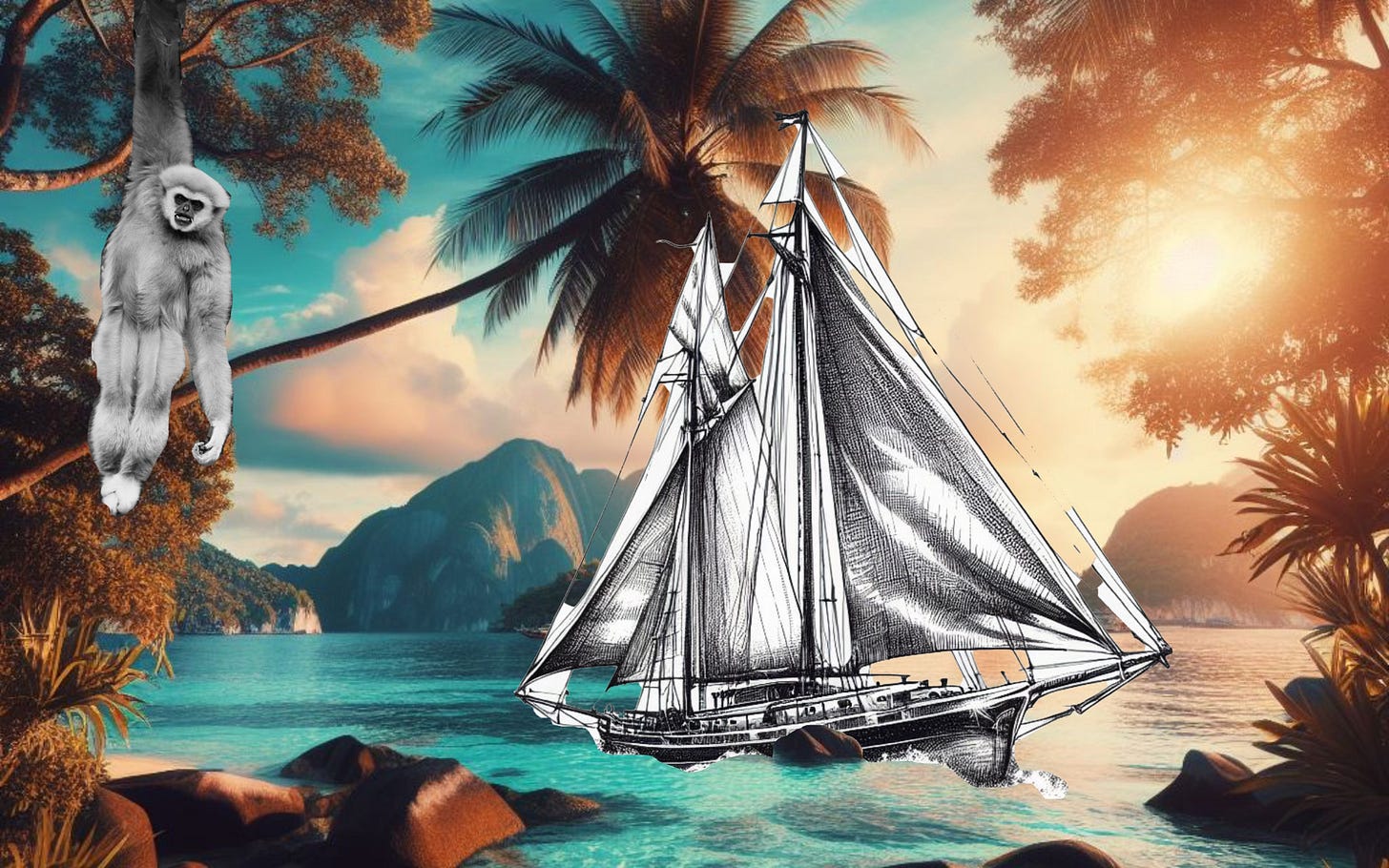What's your philosophy? Philosophies aren't merely mental constructs; they're the guiding maps shaping our lives. They're the blueprints we use to construct the world around us, shaping our perspectives and influencing the paths we choose to traverse. To exist without a philosophy is like navigating unknown territory, where every direction seems both unknown and promising, like wandering across boundless terrain or setting sail upon endless seas.
Without the map, we become subject to other forces. Like the wind deciding where the sailing boat is going, without a philosophy, others can decide where we are going. If they want us to consume, if they want us to make a career, if they want us to take a student loan, if they want us to take sides, we let ourselves be guided by them.
But who are they?
They are not the evil other enforcing harm upon us. Instead, they are also sailboats drifting by the wind. They are us, and we are them.
Once upon a time, the world was still, and there was no one wind. Until one day, Aeolus - the god of the winds- appeared. He wasn't born, for no one knew where he came from. Some say he was born through the culmination of all the breaths of everyone alive. He lived on the floating island of Aeolia that no one had ever seen. Aeolus controlled and regulated the winds. Until this day, no one has ever seen him. No one pays much attention to him, either. Yet, he is always there, caressing our faces when he feels like it. When he has our back, we enjoy him. When we have headwind, we curse.
But it's the headwind that makes us aware that there is any wind at all. Understanding another person's philosophy grants us access to their world first and then ours. We understand our philosophy in difference. Someone who has never been abroad - never experienced another culture - doesn't know their culture. Like the famous fish in the water who doesn't know what water is.
Empathy makes philosophy. And empathy begins as an imaginative act of traveling from here to there - a geography to explore. Philosophies then form geographies that we can map and explore. So, a philosophy doesn't just guide our own life but also guides us into other people's lives. Each philosophy is a unique geography we can explore, a map of thoughts and beliefs guiding us into other's experiences. When we envision ourselves in the shoes of the silenced elder, the young woman seeking refuge, the unfamiliar stranger, or the neighbor's cat, we glimpse the diverse landscapes shaped by these unique philosophies.
Our crafted philosophies are more than personal guides. They can be life rafts in the stormy seas or anchors weighing us down. Some philosophies offer solace and meaning, providing safe harbors, while others ensnare us, leading to turmoil or self-destruction.
Not all philosophies stand the test of time. Some are sinking ships, yet we cling to them desperately, even when lifeboats float nearby, inviting us to safety. We often believe we select our philosophies, yet more often than not, they choose us, defining our beliefs, attitudes, and actions without our conscious consent. When a philosophy crumbles, it forces us to acknowledge our lostness or our folly.
This is the moment change becomes an option. We are forced to adapt, evolve, or perish.
Real freedom isn't just about choosing a philosophy; it's about engaging in a perpetual dialogue with them. It's learning to listen, to question, and to embrace the wisdom found in silence - before the wind. Ultimately, true freedom lies in becoming the philosopher of our own lives—a seeker who feels the wind, navigates the unmapped terrains, and knows which lifeboat to hold onto.
🐒 Something fascinating about others
Axolotls, often called "Mexican walking fish," possess the ability to regenerate lost body parts, including limbs, spinal cord, and even parts of their heart.
📚 A book I recommend
The Bigger Picture by
because it’s the only one (I know of) that looks at how psychedelics might actually contribute to societal change.💌 A quote that matters
“But if man genuinely produces man, it is precisely not through work and its concrete results, not even the ‘work on oneself’ so widely praised in recent times, let alone through the alternatively invoked phenomena of ‘interaction’ or ‘communication’: it is through life in forms of practice. Practice is defined here as any operation that provides or improves the actor’s qualification for the next performance of the same operation, whether it is declared as practice or not”. Peter Sloterdijk (You Must Change Your Life)
✍️ A journal prompt
How does daily practice contribute to personal growth and skill development? Reflect on a practice you engage in regularly and its impact on your abilities and perspectives.




